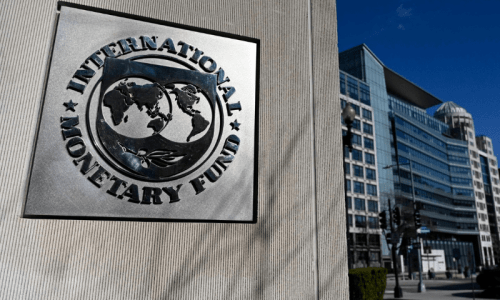Even though Pakistan is determined to vigorously implement the new International Monetary Fund (IMF) program, respected analysts continue to have questions about the ability of Finance Minister Muhammad Aurangzeb to follow through on his commitments.
Fears stem from a number of issues, including the nation’s worst-ever economic crisis, past records of failed targets, and instability brought on by current political polarization.
Speaking to the crucial matter of leaving the IMF program, Mr. Aurangzeb states that it is necessary “to have a very clear roadmap.”
Pakistani officials pushed for “a new IMF plan tailored more specifically to their country’s needs” during their initial talks in Washington.
Analysts wonder if Pakistan’s financial bailout cycle would end with the new IMF program because industrial output is negatively impacted by stringent monetary regulations.
Mr. Aurangzeb told reporters, “We have our own views, and we’ll share it with IMF. In terms of the size and duration of the program, I would rather leave it to the joint meetings.”
Aurangzeb has described Pakistan’s $6 billion to $8 billion proposal as a “guesstimate” for the next Extended Fund Facility bailout package. Nonetheless, he emphasized how crucial teamwork is to long-term economic growth.
Conversely, Jihad Azour, the head of the IMF for Middle East and Central Asia, contends that “accelerating the reforms and double down on the reform structure is important at this stage in order to provide Pakistan with its full potential of growth.”
Demand-side and supply-side strategies require a more balanced approach, according to analyst Dr. Omar Javed. Economist Rizwan Rawji, who is based in Belgium, said, “If the supply-side leadership in India took the brave and right steps towards economic prosperity, can’t we in Pakistan?”
The 7th Leaders in Islamabad Summit, which took place last week, has “Collaborating for Growth” as its topic. The organizers urged “a shared vision of a successful, sufficient and sustainable Pakistan.” More than a thousand delegates, both domestic and foreign, attended the event.
The government intended to raise the country’s growth rate over four percent in the upcoming year, therefore it was increasing support for information technology, agriculture, and industry.
Questionably, analysts wonder if the new IMF program will end the “chain of financial struggle and bailouts,” as the finance minister puts it. They question, “What is different this time around?” since Pakistan was unable to finish the IMF programs in the past due to political issues.
Pakistan has once again been recommended by the IMF to maintain stringent monetary policy, a move that businessmen claim has already had a negative impact on the country’s industrial output and budget.
During a symposium hosted by the Lahore School of Economics, Dr. Moazam Mahmood, Seemab Sajid, and Amna Noor claimed that the depreciation of the currency rate was responsible for about half of the current inflation rate, or 12 percent of the estimated 23 percent for the fiscal year 2024.
The finance minister stated in a Bloomberg interview that there would be no justification for the rupee to weaken beyond the typical annual range of roughly 6 to 8 percent.
He continued, highlighting the “solid foreign exchange reserves, a stable currency, rising remittances, and steady exports,” saying that the oil price was the one factor that might potentially throw off our estimates.
By the end of June, he projects that Pakistan’s foreign exchange reserves will be “anywhere between $9 billion and $10 billion.”
In an effort to stop under- and mis-invoicing, the customs department has announced plans to expand its monitoring of imports of commodities valued at Rs3.03 trillion by September.
The pressing issues of Pakistan’s deindustrialization and the rise of protectionism overseas must be brought up frequently in talks with the IMF about export-led growth.
Patricia Cohen of The New York Times reports that almost 2,500 protectionist industrial policies were enacted globally in 2019 — almost three times as many as in 2019. The wealthiest and most developed economies in 2023 enforced the most of these regulations, despite many of them having previously condemned such actions.
The author of the essay “Nations turn protectionist in pursuit of autonomy” notes that economic policy objectives have shifted from growth and efficiency to security, resilience, and self-sufficiency.
Following the current surge of state interventions, the IMF has developed a new set of rules pertaining to the timing and implementation of industrial policies. The Fund asserts that there are benefits if implemented properly and used to unusual market failures, such as the threats posed by climate change.
Notably, the IMF has listed Pakistan as one of the six countries experiencing major conflict this year, and it has stated that these conflicts, along with strict monetary policies, will have an impact on the countries’ economic production.
Pakistan will also apply for extra funding from the Fund’s Resilience and Sustainability Trust (RST) after the IMF loan has been approved.
By promoting sustainable growth and helping low-income and vulnerable middle-income nations become more resilient to external shocks, the RST is meant to support the long-term stability of their balance of payments.
According to an analyst, the government’s resolve to implement reforms and Mr. Aurangzeb’s capacity to strike a balance between stability and rapid growth will be demonstrated in the upcoming budget.








